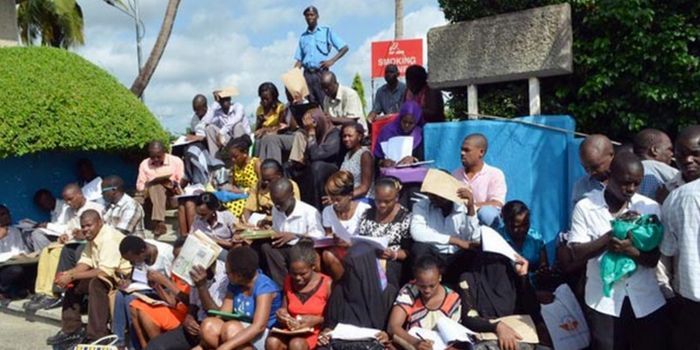The State Department for Diaspora Affairs on Wednesday, May 10, refuted claims that a Canadian organisation had contracted the government to hire 64 Kenyans for select jobs. The government entity flagged a fake advertisement notice, cautioning unsuspecting Kenyans against being duped.
Kenya High Commission in Ottawa, Canada also warned of the advertisement that had been circulating online, stating that it had not issued any endorsements on the same.
“Our attention has been drawn to this advertisement. The Mission wishes to inform you that it has not issued or endorsed any advertisement both in print and/or social media and therefore believes this is a scam.
“The general public, particularly Kenyans, are advised accordingly,” the High Commission stated.
According to the advertisement shared by the High Commission, the company was seeking to hire 18 nurses and 23 food handlers and packagers.
In addition, the company also noted that it was hiring seven drivers, and 16 caregivers all from Kenya through the government totalling 64 professionals.
"Please arrange to recruit Kenyan nationals for our company as per the details given below against the following terms and conditions," the advertisement read in part.
Earlier in a separate event on Monday, May 10, police officers detained a woman in Kayole accused of baiting Kenyans with prospective jobs in Canada and stealing millions of shillings from them.
The victims accused the suspect of vanishing into thin air after receiving the money and failing to provide evidence of the existence of the jobs.
How to spot fake job advert
Candidates should double-check whether a posting contains both spelling and grammatical errors, as it is common for most businesses to portray themselves negatively when advertising for a position.
At the same time, look out for job adverts that request payment before interviews. Recruiting agencies always post that their advertisements are free of charge and hence no one should pay any amount for the vacant position.
In addition, candidates should do a quick search to ensure a company has an online presence as well as carefully go through the details of the job advertisement. Be wary of quick rich scams that sound too good to be true.
Candidates should also avoid addresses that have a personal domain such as Yahoo, Gmail, or Hotmail.
Jobless Kenyans and Scams
A survey conducted by AFP Fact Check in July 2022, uncovered the various tricks online scammers employed to steal from unsuspecting Kenyans on the internet.
The survey revealed that not only did the scammers attract Kenyans, but also preyed on other desperate unemployed individuals across the continent, luring them with lucrative job offers that were hard to resist.
According to the latest statistics by the Kenya National Bureau of Statistics (KNBS), the number of jobless persons grew 2.94 per cent from 2.89 million in September 2022.
The data revealed that an average of 1.54 million jobless Kenyans were between 20 and 29 years - underlining the crisis in youth unemployment. By Joy Kwama, Kenyans.co.ke






